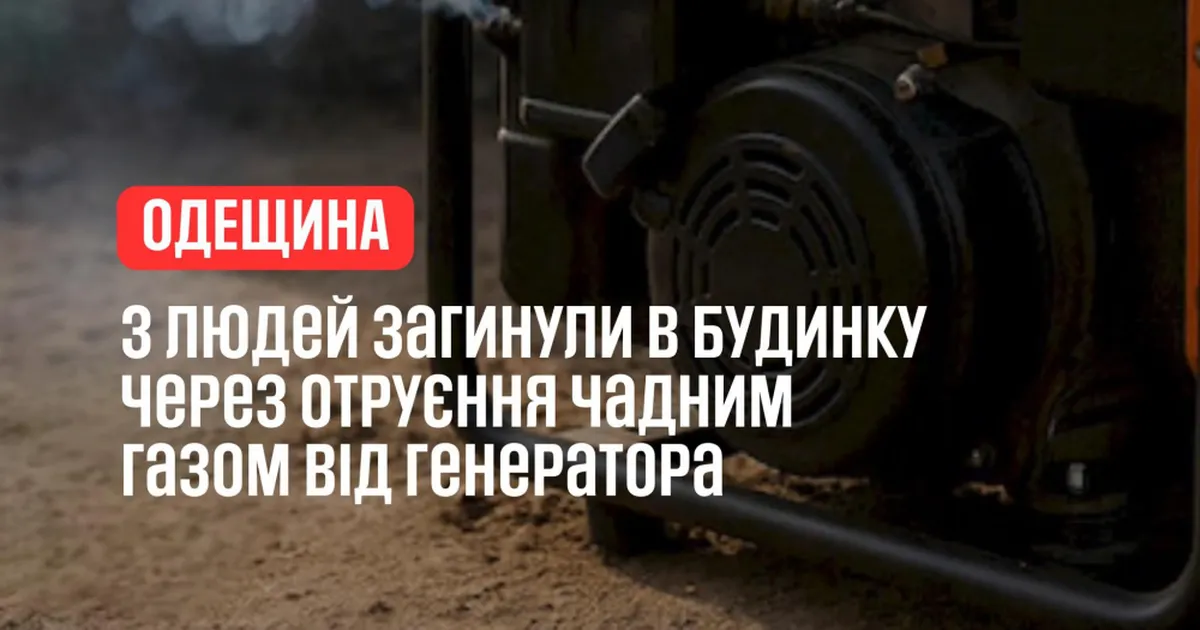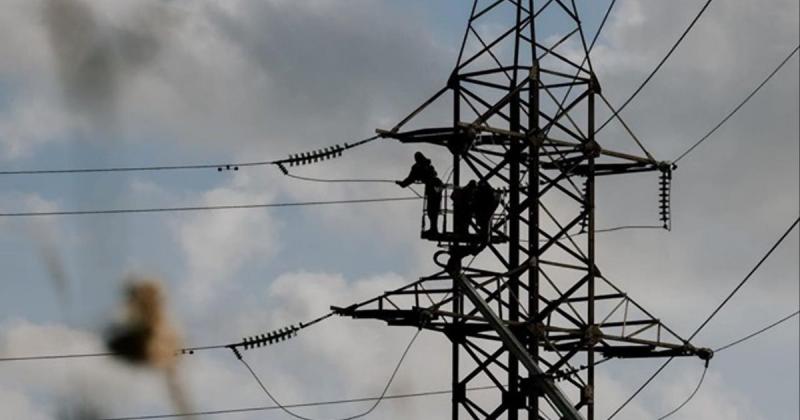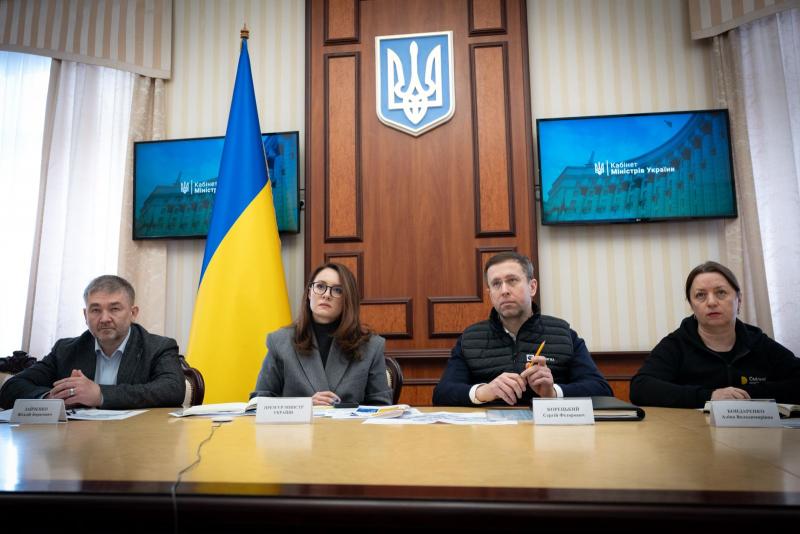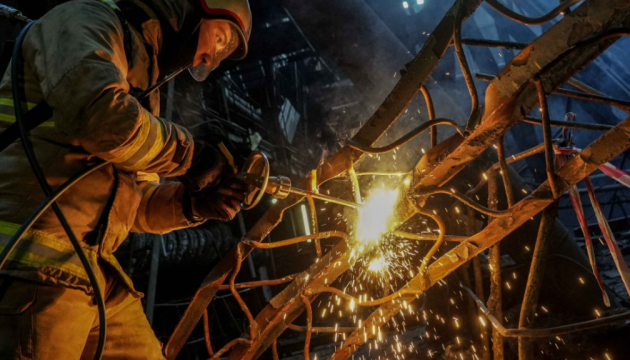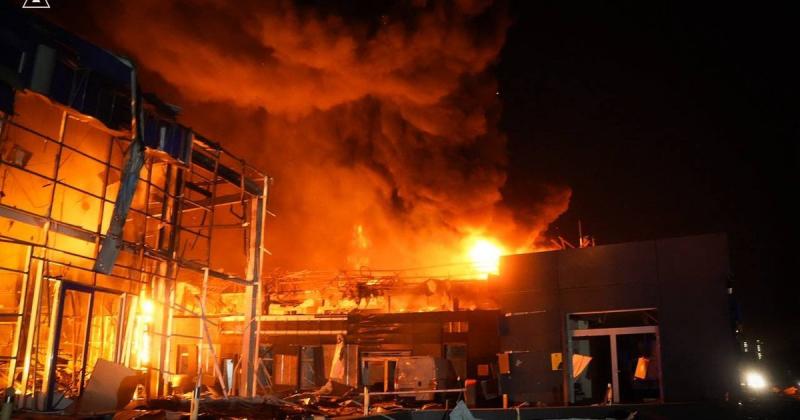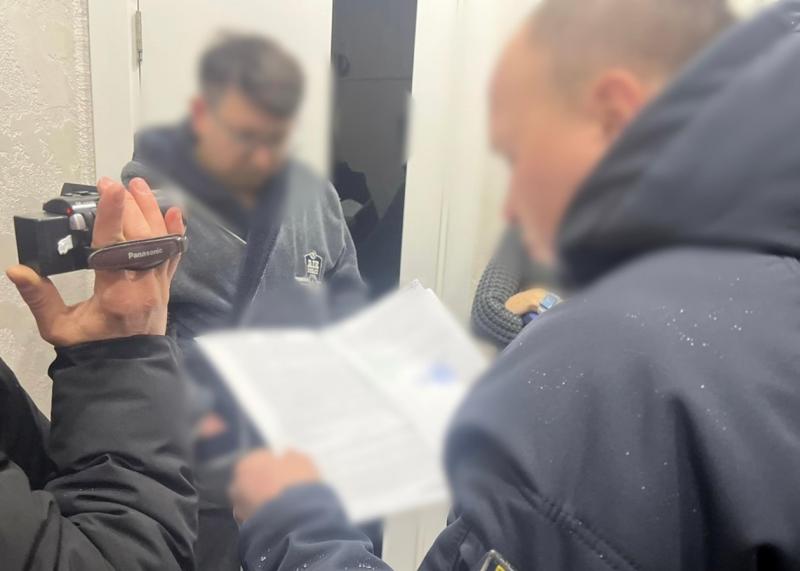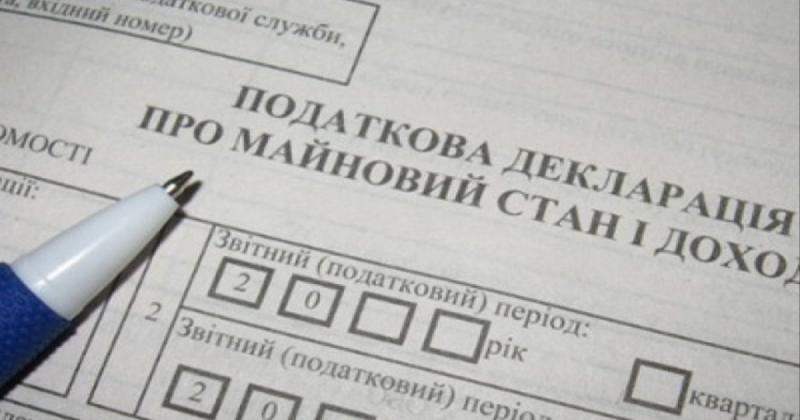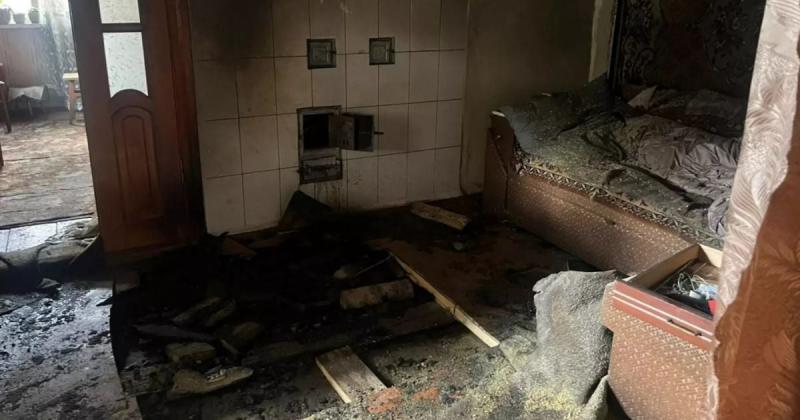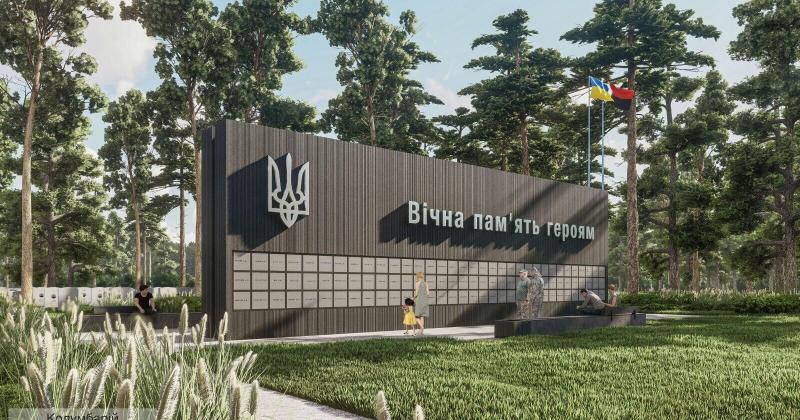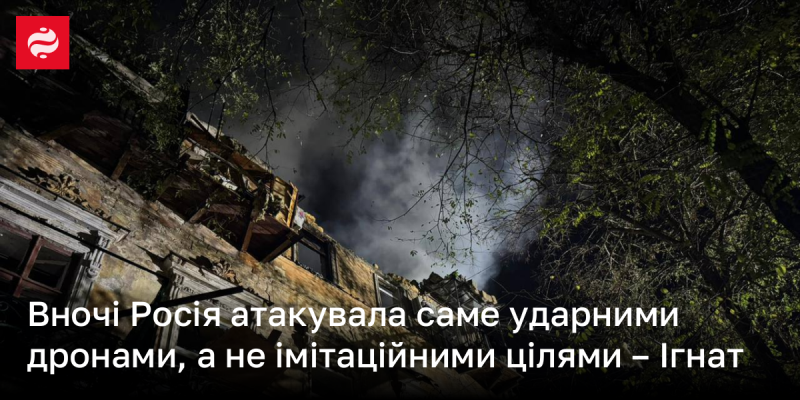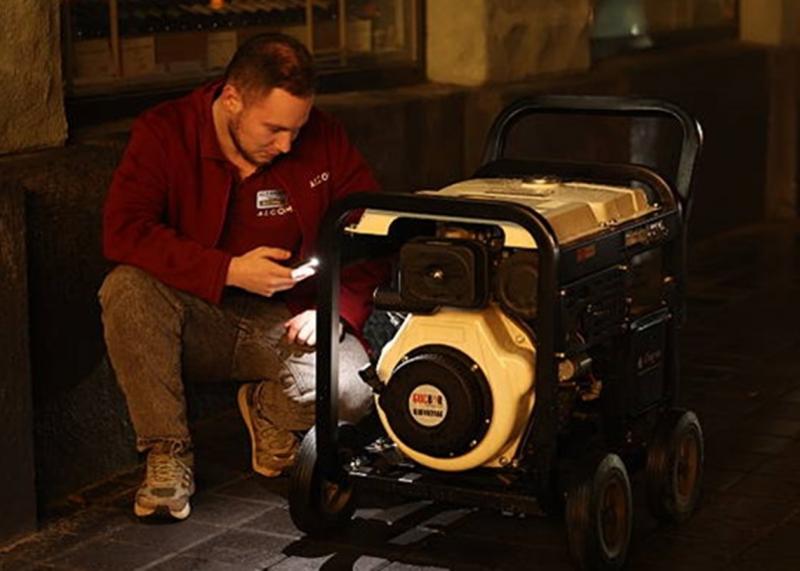Суд в Дубаї ухвалив рішення на користь GNT Group: кредитори отримують свої кошти, але не всі активи. Відповідь GNT Group на запитання Financial Times.
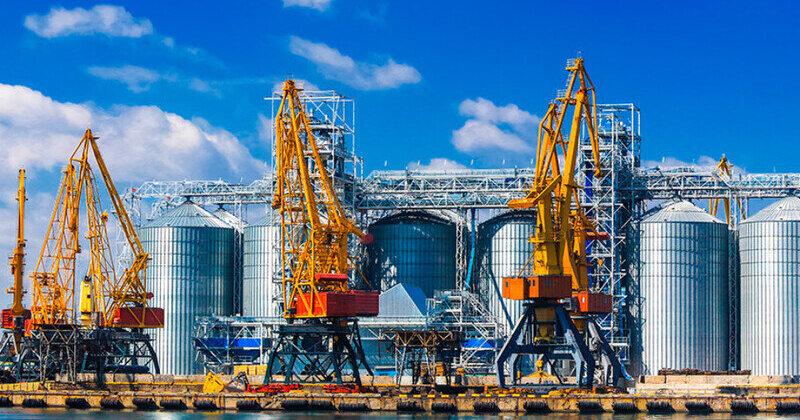
На минулому тижні у Financial Times було опубліковано матеріал українського кореспондента Кристофера Міллера, присвячений суперечці між GNT Group та їхніми колишніми кредиторами, Argentem Creek Partners і Innovatus Structured Finance. У статті зазначається, що, за інформацією авторів, Верховний Суд передав зерновий термінал Olimpex, що належав GNT Group, до рук Argentem та Innovatus. Крім того, в публікації міститься чимало критичних зауважень на адресу власників GNT Group.
Позиція GNT Group у публікації відсутня. Журналіст Кристофер Міллер стверджує, нібито не зміг зв'язатись з представниками групи. Як наслідок, читачам Financial Times свідомо, чи не свідомо, надана спотворена інформація.
Розпочнемо з того, що Верховний Суд ще не ухвалював рішення стосовно передачі терміналу. Це питання взагалі не знаходиться на розгляді у Вищому Суді України.
По-друге, в міжнародних судах справи складаються не на користь Argentem і Innovatus. GNT отримала рішення швейцарського суду, яке перешкоджає кредиторам вжити заходів для контролю над Omega Terminal S.A. Минулого тижня Апеляційний суд Дубая визнав незаконним призначення ліквідаторів та директорів кредиторами в одну з торгових і холдингових компаній цієї групи.
Лише кілька тижнів тому на порталі "Цензор.НЕТ" з'явилося перше інтерв'ю з засновником GNT Group Сергієм Грозою, тому журналісту Financial Times не склало б труднощів отримати коментар від GNT. Проте, чомусь він цього не зробив.
Тож GNT Group сама розшукала пана Міллера та запропонувала відповісти на його запитання. GNT Group закликає Financial Times дотриматись журналістських стандартів та опублікувати надані групою відповіді на запитання.
Ми з радістю запрошуємо поважне видання ознайомитись з стиснутим оглядом історії конфлікту, який має суттєві відмінності від поглядів, що їх висловлюють представники Argentum та Innovatus.
ІСТОРІЯ КОНФЛІКТУ В КОРОТКОМУ ОГЛЯДІ
Донедавна Сергій Гроза та Володимир Науменко були рівноправними власниками GNT Group, яка володіла та експлуатувала стратегічно значущі портові термінальні об'єкти в Одесі. Об'єкти включали термінал Olimpex, який є одним з найбільших зернових терміналів в Україні. Більшість одеських терміналів GNT були побудовані з нуля, використовуючи фінансування Європейського банку реконструкції та розвитку та американське фінансування від CHS, які були акціонерами терміналу. Пан Гроза та пан Науменко розвивали свій проєкт понад 20 років.
У 2019 році CHS прагнула продати свої акції. Сергій Гроза та Володимир Науменко взяли кредит у Argentem (офшорна компанія з Кайманових островів). ЄБРР відмовився бути співінвестором з Argentem, тож Argentem замістив як фінансування CHS, так і ЄБРР. Таким чином, Argentem став головним кредитором GNT, позичивши йому $75 мільйонів. Кошти були виплачені безпосередньо CHS та ЄБРР.
Кредит Argentem мав надійний захист. Кредитори отримали в заставу іпотеку на нерухомість, що включала термінал та його обладнання. У заставі фонду також знаходилися акції холдингових компаній, які володіли цим терміналом. За оцінкою PWC, вартість терміналу становила 366 мільйонів доларів, що майже в п'ять разів перевищує суму кредиту Argentem.
Згідно з угодою з Argentem, фонд Innovatus надав додаткові $20 мільйонів позики для фінансування оборотного капіталу компанії GNT, яка, окрім стивідорного бізнесу, також володіла товарно-торговим підрозділом. Кредит від Innovatus був забезпечений запасами зерна, що зберігалися на терміналі. В рамках тієї ж угоди з Argentem, Innovatus отримав права на забезпечення активів терміналу на загальну суму $366 мільйонів.
Фінансування, надане кредиторами, було надзвичайно дорогим, під майже 20% річних. GNT прагнула рефінансувати кредити шляхом випуску єврооблігацій, випуск яких провалився через вторгнення Росії в Україну.
Початок війни ставив бізнес GNT на коліна. Термінал був повністю заблокований. Українські військові були всередині терміналу, коли російський флот наблизився до Одеси. Це означало, що бізнес не мав доходу від своїх послуг з перевалки, а експорт з Одеси був повністю зупинений. У той же час GNT повинна була виплачувати зарплату своїм 2,5 тис. працівникам. Через все це GNT не могла продовжувати погашати кредити - як і багато інших українських підприємств.
Враховуючи відсутність доступу GNT до терміналу, зерно, що зберігається там, почало псуватися. Зіпсоване зерно небезпечно зберігати в терміналі - воно виділяє метан, який може спричинити вибух та руйнування термінального обладнання. Щоб зберегти активи, GNT найняла компанію для евакуації зіпсованого зерна та очищення терміналу.
Це дозволило групі перезапускати термінал у другій половині 2022 року. Перезапуск терміналу, у свою чергу, дозволив GNT почати генерувати достатній грошовий потік, щоб почати погашати кредити. У грудні 2022 року пан Науменко запропонував Argentem виплачувати $2 мільйони на місяць і шукати інвестора. Кредиторам пропонувалось або рефінансувати кредит, або продати термінал, щоб кредитори могли отримати те, що їм належить, а пан Гроза та пан Науменко могли отримати залишок.
Кредитори повідомили, що вивчать пропозицію, але всього через два дні розпочали масовану атаку на компанію GNT. Вони захопили холдингову компанію GNT Group, зареєстровану на Кіпрі, і ініціювали ліквідацію ключового активу групи в Україні - Olimpex Coupe International. Вони також направили "тітушок", які намагалися захопити термінал. У результаті їм вдалося отримати контроль над фінансовими рахунками GNT Group і призначити своїх представників на керівні посади в інших компаніях групи. Крім того, було подано позов проти пана Грози та пана Науменка, щоб змусити їх особисто виплатити кредити, хоча вони більше не мали контролю над своїми активами.
Пізніше кредитори розпочали процес продажу активів груп компаній, які були під їх контролем. Серед них була холдингова компанія Omega Terminal S.A., оцінена в 30 мільйонів швейцарських франків, яку продали компанії Asotra Holding Ltd, що належить кредиторам, всього за 1 швейцарський франк. Термінал Olimpex перейшов до компанії Lavanda за 5 мільйонів доларів.
Кредитори також прагнули продати холдингову компанію, MetalsUkraine LLC, компанії, яку вони створили спеціально для цієї мети, GNT Holdco 1 Ltd.
Кредитори продовжують висувати матеріальні претензії Грозі та Науменко. Вони також продовжують нараховувати їм 20% річних за кредитами. Так як Гроза та Науменко продовжують наполягати на справедливому розрахунку за кредитами, проти них відкрито кримінальне провадження.
Гроза та Науменко погоджуються, що кредити мають бути виплачені. Вони також визнають, що через війну були затримки з погашенням. Але не приймають обвинувачень у шахрайстві і не погоджуються з привласненням активів, вартість яких в чотири рази перевищує суму кредиту.
ВІДПОВІДІ НА ЗАПИТАННЯ ВИДАННЯ FINANCIAL TIMES:
1. Щодо рішення Верховного Суду України про повернення контролю над терміналом "Олімпекс Купе" розпоряднику майна
По-перше, у Верховному Суді немає жодного спору щодо передачі терміналу "Олімпекс" фонду Argentum. Верховний Суд не здійснював передачу терміналу Argentum і взагалі не займався цим питанням.
Argentem вступив у конфлікт з кількома українськими фінансовими установами щодо частини застави за кредитом. Фонд здобув перемогу в одній з цих суперечок. Однак суд не зробив висновку про те, що це дає Argentem право на управління терміналом.
Коротко про суть справи: перед початком війни GNT Group мала окремий борг перед фондами Argentum та Innovatus, а також дві кредитні лінії в українських фінансових установах.
Оскільки у 2022 році компанії Argentum/Innovatus відмовились прийняти пропозиції GNT Group щодо реструктуризації кредитів, українські банки почали процедуру стягнення на іпотечне майно терміналу.
Цінні папери Argentum/Innovatus, а також пов'язані судові справи, знаходяться під управлінням китайської компанії Madison Pacific Trust. На нашу думку, Madison Pacific безпідставно розпочала процедуру банкрутства та оскаржує укладення іпотечних угод з українськими банками, стверджуючи, що Argentum/Innovatus не надали необхідну згоду на ці угоди.
Проте під час судового розгляду стало відомо, що Madison Pacific офіційно погодилася на укладення іпотечних угод. Ці згоди були оформлені в письмовій формі через листи, в яких компанія відмовлялася від права пред'явлення вимог та погоджувалася на передачу зернового терміналу в іпотеку. Ці документи були підписані генеральним директором Madison Pacific Девідом Нафталі. На підтвердження надання такої згоди, в день підписання листів, компанія Madison Pacific звернулася до приватного нотаріуса з заявами про скасування іпотек.
Таким чином, Argentum/Innovatus були абсолютно усвідомлені щодо укладання іпотечних угод і добровільно погодилися виключити зерновий термінал зі свого іпотечного портфеля, щоб передати його в іпотеку українським банкам. Це рішення дало можливість використовувати термінал як забезпечення для кредитних ліній.
Наразі Верховний Суд прийняв рішення лише про скасування договору іпотеки за кредитами одного з банків. Рішення суду за іпотекою банку "Південний" очікується лише 5 серпня.
Із публікації у Financial Times випливає, що Argentum/Innovatus вже відомо, яким воно буде. На підтвердження нібито передачі терміналу інвестфонду використана цитата голови Офісу Президента Андрія Єрмака.
Ми вважаємо, що це є ознакою втручання у діяльність Верховного Суду або тиску на суддів з метою ухвалення необхідного рішення.
2. Що стосується затримання Володимира Науменка і обвинувачень у шахрайських діях:
Володимир Науменко є одним із засновників GNT Group і протягом більше ніж 20 років працював над реалізацією сучасного термінального комплексу в Одеському порту. Звинувачення, які висунуті проти нього, стосуються зерна, що зберігалося на терміналі і було під заставою у компанії Innovatus. Звинувачення в нібито "умисному шахрайстві" не відповідають дійсності:
В заставу було передано не віртуальне, а реально існуюче зерно, наявність якого підтверджується звітами уповноважених інспекторів.
Окрім зернових, компанія Innovatus також передала в іпотеку високовартісний термінал для зберігання зерна, розташований в Одеському порті. Згідно з даними звіту PWC на 31 грудня 2019 року, його ринкова вартість оцінювалася до $366 млн.
* за угодою по кредиту нараховувалися відсоткові платежі;
Науменко не раз висловлював ініціативи щодо перетворення умов кредиту та шукання можливостей для рефінансування з метою погашення боргових зобов'язань.
* 27 жовтня 2022 року на загальних зборах "G.N. Terminal" було запропоновано повне погашення заборгованості перед Innovatus, яка була заблокована представником інших кредиторів - Джоном Паттоном;
Регіональний менеджер фонду Argentem Creek Partners Джон Паттон був членом Ради директорів, яка регулярно отримувала інформацію про запаси та стан зерна, а також відповідні документи.
* починаючи із 24.02.2022 Innovatus жодного разу не провела належної інспекції залишків зерна на зерновому терміналі "Олімпекс". Лише 12.10.2023 представники Innovatus звернулись із проханням надати доступ до зернового терміналу "Олімпекс";
На зерновому терміналі "Олімпекс" було зібрано необхідний обсяг зерна для задоволення потреб Innovatus. Станом на 19 жовтня 2023 року на території терміналу нараховувалося 137 тисяч тонн зернових, що підтверджується Актом перевірки запасів, підготовленим компанією AmSpec.
* Щоб вирішити питання передачі зазначеного зерна, було потрібно укласти відповідні угоди. Представники GNT Group не раз зверталися до Innovatus з ініціативою провести переговори щодо врегулювання заборгованості. Проте Innovatus уникнув зустрічі, що свідчить про їхнє небажання отримати погашення кредитної заборгованості;
25 червня 2024 року компанія Madison Pacific реалізувала акції Omega Terminal SA англійській фірмі Asotra Holding Limited за символічну ціну в 1 швейцарський франк. На момент угоди ринкова вартість акцій Omega Terminal SA оцінювалася в 31 мільйон доларів, що удвічі перевищувало суму кредиту, виданого компанією Innovatus Capital Partners.
Отже, компанія Innovatus вже давно отримала компенсацію, яка в 2-3 рази перевищує розмір наданого кредиту. На думку GNT Group, ситуація із заставленим зерном стала приводом для ініціювання кримінального розслідування проти Володимира Науменка. Арешт і подальше утримання Науменка, фактично взятого в заручники, є ультимативним кроком з боку GNT Group, що прагне змусити його відмовитися від свого законного права на захист у господарських судах і прийняти всі вимоги кредиторів.
3. Стосовно висловлювання Джона Паттона про "викрадення заставленого зерна":
Регіональний директор кредитного фонду Argentem Creek Partners Джон Паттон повідомив, що зерно, яке перебувало під заставою, було знищене в Сумах, розташованих за сотні миль від Одеси.
Перед тим, як зерно буде передано в заставу, якість і вага продукції перевіряються міжнародними сюрвеєрними компаніями. Однією з таких престижних організацій є швейцарська компанія Cotecna. У контракті з Innovatus було чітко вказано, що саме Cotecna буде незалежним сюрвеєром, відповідаючи за контроль як на етапі передачі зерна в заставу, так і на подальших етапах. Cotecna займалася перевіркою ваги та якості вантажу.
А вже після того, як зерно зіпсувалося, експертизу проводила інша велика міжнародна компанія - Bureau Veritas. Їх повний звіт знаходиться за посиланням.
Заяви Джона Паттона не підкріплені жодними вагомими доказами. У період з лютого по червень 2022 року на зерновому терміналі "Олімпекс" сталося псування зерна, що стало наслідком російської агресії. Представники ACP були ознайомлені з ситуацією та обсягами зерна, яке зберігалося в умовах війни, без електрики та опалення, під загрозою ракетних атак. Зернові культури в елеваторах почали піддаватися гниттю та тлінню. Це створює реальну техногенну небезпеку, враховуючи режимний характер об'єкта в Одеському порту та наявність вибухонебезпечних матеріалів, що збільшує ризики виникнення пожеж.
Часткове знищення зіпсованого зерна стало необхідним заходом, що був ухвалений для уникнення кризової ситуації, спираючись на відповідні звіти та експертні оцінки.
GNT Group заперечує звинувачення щодо "зникнення" та "спалення" зерна. Підкреслюємо, що на зерновому терміналі "Олімпекс" завжди було акумульовано достатню кількість зерна, необхідного для покриття вимог кредитора Innovatus.
4. Щодо коментаря Джона Паттона, в якому він зазначив, що спочатку інвестори демонстрували гнучкість, а потім намагались досягти угоди, але, за його словами, GNT Group нібито проявила "непрофесійний" підхід.
GNT Group готова надати редакції Financial Times аудіозаписи, які підтверджують, що Володимир Науменко звернувся до Джона Паттона з пропозицією відновити щомісячні виплати в розмірі $2 млн фондам для погашення кредитів, що становить більше 24% річних від інвестицій, отриманих від цих фондів. Ці події відбулись у 2022 році, після запуску зернового коридору, коли термінал, що зазнав тривалого простою, нарешті відновив свою роботу.
У відповідь на це кредитори вимагали сплатити всю суму боргу разом з відсотками відразу. Чи справді Argentem вважає цей спосіб комунікації "професійним"?
Варто зазначити, що "професіоналізм" Argentem відомий багатьом підприємцям по всьому світу - цей фонд активно залучений до судових суперечок від Казахстану до Бразилії. Проблеми виникають у численних компаній, які співпрацюють із фондом, а не лише у GNT Group.
Раніше в Україні під час подібних ситуацій агрохолдинг "Мрія" зазнав серйозних труднощів, а також виникли значні конфлікти з такими великими українськими компаніями, як "Метінвест" і "Interpipe". Окрім того, Argentem Creek Partners стикається з вагомими репутаційними ризиками, оскільки у 2024 році вони надали венчурний кредит у розмірі 20 мільйонів доларів фінансовій технологічній компанії Salmon. Ця компанія має співзасновників, пов'язаних з російськими бізнесменами Павлом Федоровим та Георгієм Чесаковим, які мають зв'язки з "Норильським нікелем", "Роснафтою" та "Тінькофф Банком".
5. Щодо висловлювань Джона Паттона, нібито "Олімпекс" слугував епіцентром нелегального зерна.
Жодного підтвердження заява не немає. GNT понад 15 років вела прозорий експортний бізнес, проходила міжнародні аудити та працювала з такими структурами, як ЄБРР і CHS. Виникає питання до самого Джона Паттона - навіщо ж він вкладав кошти американських пенсійних фондів у "центр тіньового зерна", тобто нелегальний бізнес?
Пояснюємо цю заяву виключно бажанням дискредитувати GNT Group.
6. Щодо інформації FT про розслідування СБУ та БЕБ щодо тіньового зерна
Акціонери GNT Group не отримали жодних офіційних повідомлень від правоохоронних органів щодо цього питання. Також немає інформації про те, що керівникам терміналу були пред'явлені звинувачення. Крім того, нам не відомо про будь-які випадки арешту зерна на території терміналу як доказ у справах, пов'язаних з незаконними схемами.
7. Щодо заяв керівника терміналу від кредиторів Карла Стурена про покарання тих, хто "намагався надурити американських інвесторів"
GNT Group має іншу точку зору на події, що розгортаються. Використовуючи момент, коли український бізнес опинився в занепаді на початку війни, інвестиційний фонд почав захоплювати підприємства, засновані українськими підприємцями протягом більш ніж двох десятиліть. Це не просто повернення інвестицій, а й рейдерське захоплення, оскільки вартість цих бізнесів втричі перевищує суму залучених коштів.
Інвестфонд регулярно використовує свої зв'язки з США для тиску на суди та державні органи. Українська влада значною мірою покладається на підтримку американських партнерів і виявляє щиру готовність виконувати їх побажання.
Ми вважаємо, що ентузіазм пана Стурена є передчасним. Нещодавно Апеляційний суд Дубая ухвалив рішення про скасування ліквідації GNT Trade DMCC, яка володіє терміналом "Олімпекс". Також було підтверджено, що Душан Деніч є єдиним законним керівником цієї компанії. Це свідчить про те, що Madison Pacific, призначаючи своїх директорів і ліквідаторів, порушила законодавчі норми.
Дії уповноважених представників GNT Trade в Україні тепер викликають питання та потребують переосмислення.
Sure! Please provide the text you'd like me to make unique.
Пропонуємо вашій увазі англомовний переклад заяви компанії GNT Group.
Sure! Please provide the text you'd like me to make unique.
"Dubai court rules in favor of GNT Group, allowing creditors to reclaim their funds, though not the complete asset." GNT Group addresses questions from the Financial Times.
Recently, the Financial Times featured an article by its Ukrainian correspondent, Christopher Miller, that delved into the ongoing dispute between GNT Group and its previous creditors, Argentem Creek Partners and Innovatus Structured Finance.
The article claims that the Supreme Court allegedly transferred the Olimpex grain terminal - formerly owned by GNT Group - to Argentem and Innovatus. The publication also includes numerous accusations against the owners of GNT Group.
The article fails to represent GNT Group's perspective. According to journalist Christopher Miller, he reportedly could not get in touch with the group's representatives.
Consequently, readers of the Financial Times were exposed to a skewed representation, whether by design or by accident.
Firstly, the Supreme Court has yet to make any ruling concerning the terminal's transfer. This issue is currently not being reviewed by the Supreme Court of Ukraine in any capacity.
In addition, the current landscape in international courts is not advantageous for Argentem and Innovatus. GNT has secured a ruling from Switzerland that prevents creditors from seizing control of Omega Terminal S.A. Furthermore, a recent decision from the Dubai Court of Appeal deemed the creditors' placement of liquidators and directors in one of the group's trading and holding companies as illegal.
Just a couple of weeks ago, the Ukrainian media outlet Censor published the first interview with GNT Group founder Serhii Hroza, so it would not have been difficult for the Financial Times journalist to obtain a comment from GNT.
Nevertheless, for an unknown reason, he was unable to accomplish this task.
Consequently, the GNT Group took the initiative to contact Mr. Miller and extended an invitation to address his inquiries.
GNT Group urges the Financial Times to maintain its commitment to journalistic integrity by featuring the group's replies to the inquiry.
We encourage the respected publication to examine a concise overview of the conflict's history, which contrasts markedly with the perspective offered by the representatives of Argentem and Innovatus.
BRIEF HISTORY OF THE CONFLICT
Until recently, Serhii Hroza and Volodymyr Naumenko shared equal ownership of GNT Group, a company that managed crucial port terminal facilities in Odesa. Among these assets was the Olimpex terminal, recognized as one of Ukraine's largest grain handling facilities. The majority of GNT’s terminals in Odesa were constructed from the ground up, funded by investments from the European Bank for Reconstruction and Development (EBRD) and the U.S.-based company CHS, both of which held stakes in the terminal. Mr. Hroza and Mr. Naumenko dedicated over two decades to the development of their venture.
In 2019, CHS aimed to divest its shares. To facilitate this, Serhii Hroza and Volodymyr Naumenko secured a loan from Argentem, an offshore firm incorporated in the Cayman Islands. When the European Bank for Reconstruction and Development (EBRD) opted not to partner with Argentem for investment, the latter took over the roles of both CHS and EBRD in the financial arrangement. Consequently, Argentem emerged as the primary creditor of GNT, providing the group with a loan of USD 75 million, which was directly allocated to CHS and EBRD.
The loan provided by Argentem was completely backed by collateral. The lenders possessed mortgages on both the real estate, which included the terminal and its associated equipment, as well as pledged shares from the holding companies that owned the terminal. PwC had appraised the terminal at USD 366 million, which was almost five times the amount of Argentem's loan.
With the approval of Argentem, the Innovatus fund extended an extra loan of USD 20 million to support GNT's working capital requirements, which included not only stevedoring activities but also its commodity trading division. The loan from Innovatus was backed by the grain reserves held at the terminal. Furthermore, with Argentem's consent, Innovatus obtained collateral rights over terminal assets valued at USD 366 million.
The funding obtained from the lenders was highly costly, with interest rates approaching 20%. GNT sought to restructure its debt by launching Eurobonds; however, this effort fell short following Russia's incursion into Ukraine.
The outbreak of the conflict severely crippled GNT's operations. The terminal became utterly impassable, with Ukrainian forces present when the Russian navy neared Odesa. As a result, GNT's transshipment activities came to a standstill, leading to a complete cessation of exports from the port. Compounding the situation, GNT was still required to disburse salaries to its workforce of 2,500. Consequently, the company found itself unable to meet its loan obligations, mirroring the struggles faced by numerous other Ukrainian businesses.
Because GNT was unable to access the terminal, the grain that was kept there started to deteriorate. Deteriorating grain poses significant risks when stored in a terminal, as it produces methane gas, which can result in explosions and damage to terminal machinery. To mitigate these risks and protect the asset, GNT engaged a specialized company to remove the spoiled grain and sanitize the terminal. This action facilitated the terminal's reopening in the latter part of 2022. Consequently, the terminal's relaunch allowed GNT to begin earning enough revenue to initiate loan repayments.
In December 2022, Mr. Naumenko proposed a strategy to Argentem that involved repaying USD 2 million monthly while also looking for a new investor. The creditors were presented with two options: they could either opt to refinance the loan or proceed with the sale of the terminal, which would enable them to recover their dues, leaving Mr. Hroza and Mr. Naumenko with the remaining balance.
The creditors stated they would consider the proposal, but just two days later launched a full-scale attack on GNT's business. They seized GNT Group's holding company in Cyprus. They initiated the liquidation of the group's key asset in Ukraine, Olimpex Coupe International. They sent in hired enforcers ("titushky") who attempted to break into the terminal. They took control of GNT Group's bank accounts and appointed their own directors to other GNT Group companies. They also filed lawsuits against Mr. Hroza and Mr. Naumenko, demanding they personally repay the loans - even though the two no longer controlled their assets.
Subsequently, the creditors began selling off group assets to affiliated companies. One of the holding companies, Omega Terminal S.A., valued at 30 million Swiss francs, was sold to a creditor-controlled company called Asotra Holding Ltd for just 1 Swiss franc.
The Olimpex terminal has been acquired by a firm named Lavanda for a sum of $5 million.
The creditors also sought to sell another holding company, MetalsUkraine LLC, to a specially created vehicle - GNT Holdco 1 Ltd.
The creditors continue to bring financial claims against Hroza and Naumenko. They also continue to charge them 20% interest on the loans.
Since Hroza and Naumenko continue to demand a fair settlement of the debt, criminal proceedings have been initiated against them.
Mr. Hroza and Mr. Naumenko concur that the loans are required to be repaid. They recognize that the conflict has led to postponements in repayment. Nevertheless, they firmly deny any claims of fraudulent activity and do not consent to the creditors' seizure of assets that exceed the loan's value by four times.
RESPONSES TO QUESTIONS FROM THE FINANCIAL TIMES
1. Concerning the ruling by the Supreme Court of Ukraine to transfer control of the "Olimpex Coupe" terminal back to the insolvency administrator.
First of all, there is no case before the Supreme Court concerning the transfer of the Olimpex terminal to the Argentem fund. The Supreme Court has not transferred the terminal to Argentem and has not considered this issue at all.
Argentem was involved in a legal dispute with certain Ukrainian banks over part of the collateral for its loan. The fund won one of these disputes. However, the court has never ruled that this means Argentem now has the right to control the terminal.
In summary, the context of the case is as follows: prior to the onset of the war, GNT Group was already involved in a distinct loan agreement with Argentem/Innovatus, in addition to having two lines of credit from Ukrainian financial institutions.
After Argentem/Innovatus declined GNT Group's proposals in 2022 to reorganize the loan agreements, the Ukrainian banks moved forward with the foreclosure process on the terminal assets that had been mortgaged.
The securities of Argentem/Innovatus and the relevant legal proceedings are managed by the Chinese firm Madison Pacific Trust. It was Madison Pacific that, in our view unlawfully, initiated the bankruptcy procedure and began challenging the validity of the mortgage agreements with Ukrainian banks, alleging that Argentem/Innovatus had not consented to those deals.
During the legal proceedings, it was determined that Madison Pacific had indeed provided official approval for the mortgage agreements. This approval was documented through written waiver and consent letters, which were signed by the company's CEO, David Naftali. These letters confirmed both the relinquishment of any claims and the authorization to mortgage the grain terminal.
To provide additional evidence of approval, on the same day the letters were executed, Madison Pacific filed formal requests with a private notary to cancel its existing mortgages.
Consequently, Argentem and Innovatus were completely cognizant of the execution of the mortgage contracts and intentionally opted to remove the grain terminal from their mortgage portfolio, enabling it to be pledged to Ukrainian banks. This decision facilitated the terminal's use as collateral for obtaining credit lines.
Currently, the Supreme Court has issued a ruling to void the mortgage contract associated with loans from a specific bank. A verdict regarding the mortgage agreement with Bank "Pivdennyi" is anticipated to be announced on August 5.
However, the Financial Times piece suggests that Argentem/Innovatus may already have insight into the outcome of that decision. To bolster the claim regarding the terminal's handover to the investment fund, the article cites a statement from Andriy Yermak, the Head of the Presidential Office.
We are concerned that this situation may indicate potential interference in the Supreme Court's functions or an attempt to influence the court's decisions to achieve a specific result.
2. Concerning the apprehension of Volodymyr Naumenko and the claims of fraudulent activities.
Volodymyr Naumenko, a co-founder of GNT Group, has invested more than two decades into developing a cutting-edge terminal facility at the Port of Odesa. Currently, Naumenko faces allegations related to grain that was stored at the terminal and used as collateral for Innovatus. However, the claims of supposed "premeditated fraud" stand in stark contrast to the evidence available:
* The collateral was not "virtual" grain, but physically existing grain - its presence was confirmed by reports from authorized inspectors;
Aside from the grain assets, Innovatus received a valuable grain terminal located in the Port of Odesa as security. According to a market assessment conducted by PwC on December 31, 2019, its value was estimated at approximately USD 366 million.
* Payments for interest were fulfilled in accordance with the loan contract.
* Naumenko repeatedly made proposals to restructure the loan and seek refinancing to settle the debt;
On October 27, 2022, at a general meeting of "G.N. Terminal," a motion to fully settle the debt owed to Innovatus was put forward. However, this motion faced opposition from John Patton, a representative of the other creditors, who blocked it.
* John Patton, a regional manager of Argentem Creek Partners, sat on the Board of Directors, which was regularly informed about the grain's status and condition, and received all necessary documentation;
As of February 24, 2022, Innovatus has not performed a thorough examination of the grain reserves stored at the Olimpex terminal. It wasn't until October 12, 2023, that representatives from Innovatus sought permission to enter the grain terminal.
The Olimpex terminal had an adequate stock of grain to meet Innovatus's claims. As of October 19, 2023, the terminal contained 137,000 tons of grain, as verified by an Inventory Inspection Act conducted by AmSpec.
* To arrange the transfer of this grain, appropriate agreements needed to be signed. GNT Group representatives repeatedly reached out to Innovatus proposing negotiations to resolve the debt. However, Innovatus consistently avoided engagement, indicating an unwillingness to recover the loan;
On June 25, 2024, Madison Pacific divested its shares in Omega Terminal S.A. to the UK firm Asotra Holding Limited for a nominal sum of 1 Swiss franc. At the point of this transaction, the shares held a valuation of USD 31 million, representing more than twice the value of the loan provided by Innovatus Capital Partners.
Therefore, Innovatus has already recovered compensation amounting to 2-3 times the value of the loan. In GNT Group's view, the story surrounding the pledged grain was used as a pretext to initiate criminal proceedings against Volodymyr Naumenko.
His capture and confinement—essentially holding him as a hostage—act as a pressure tactic aimed at the GNT Group, compelling them to forfeit their legal right to defend themselves in commercial litigation and to comply with all the creditors' demands.
3. Concerning John Patton's remarks on the "vanishing of committed grain"
John Patton, the regional manager for the Argentem Creek Partners credit fund, asserted that the grain used as collateral had been destroyed in Sumy, located hundreds of miles away from Odesa.
However, before grain is accepted as collateral, its quality and weight are inspected by international surveyor companies. One such reputable organization is the Swiss company Cotecna.
The contract with Innovatus clearly outlined that Cotecna would serve as the impartial surveyor during both the grain pledging phase and the subsequent stages.
Cotecna oversaw the assessment of both the weight and quality of the shipments.
Once the grain had deteriorated, a separate major international firm, Bureau Veritas, carried out the inspection. You can access their comprehensive report through the link provided below.
The statements made by John Patton are entirely unsubstantiated. Between February and June 2022, grain at the Olimpex terminal spoiled as a result of Russian aggression. ACP representatives were informed of the grain's condition and volume, which had to be stored under wartime conditions -- without electricity or heating, and under the constant threat of missile strikes. The grain in the silos began to rot and smolder.
This resulted in a significant technological hazard—considering the terminal's limited-access designation within the Port of Odesa and the existence of explosive facilities, the potential for a fire was a genuine concern.
The decision to partially dispose of the spoiled grain was a necessary action aimed at averting a potential crisis, guided by pertinent evaluations and expert analyses.
GNT Group refutes all allegations regarding the "disappearance" or "incineration" of grain. We would like to stress that the Olimpex terminal has consistently maintained an adequate stock of grain to satisfy the demands of our creditor, Innovatus.
4. Regarding John Patton's statement that initially the investors "were flexible," then tried to negotiate, but GNT Group allegedly acted "unprofessionally"
GNT Group is ready to furnish the Financial Times editorial team with audio evidence that Volodymyr Naumenko proposed a repayment strategy to John Patton, entailing monthly payments of USD 2 million to manage the loans, which translate to an annual interest rate exceeding 24% on the invested capital. This proposal was put forth in 2022, subsequent to the reopening of the grain corridor, as the terminal began operations again after an extended period of enforced inactivity.
In reaction, the lenders insisted on the prompt and complete repayment of the loan, including accrued interest. Is this what Argentem considers "professional" communication?
It’s important to recognize that Argentem’s interpretation of "professionalism" is familiar to a wide array of entrepreneurs globally. The fund has been entangled in legal battles spanning from Kazakhstan to Brazil. A variety of companies, not just GNT Group, have faced challenges following their collaborations with Argentem.
In the past, the agricultural company Mriya in Ukraine faced a similar fate, being virtually "disassembled" under comparable conditions. Additionally, significant conflicts arose with prominent Ukrainian firms like Metinvest and Interpipe.
In addition, Argentem Creek Partners is confronted with significant reputational challenges stemming from its $20 million venture loan in 2024 to the fintech firm Salmon. This company was co-founded by Russian entrepreneurs Pavlo Fedorov and Heorhii Chesakov, who have connections to prominent entities such as Norilsk Nickel, Rosneft, and Tinkoff Bank.
5. Concerning John Patton's assertions that "Olimpex served as a center for clandestine grain operations."
There is absolutely no evidence supporting this claim.
For more than 15 years, GNT has engaged in open export practices, participated in global audits, and collaborated with organizations like the EBRD and CHS. This leads to a pertinent inquiry for Mr. John Patton: why would he choose to allocate U.S. pension funds into what has been labeled a "shadow grain hub," suggesting an operation that may be illegal?
We interpret this statement as nothing more than an effort to undermine the credibility of GNT Group.
6. In relation to the Financial Times' reference to an inquiry conducted by the Security Service of Ukraine (SBU) and the Bureau of Economic Security (BES) concerning illicit grain operations.
The shareholders of GNT Group have not received any official documentation from law enforcement agencies on this matter. We are not aware of any charges being brought against the terminal's management in connection with such claims. Nor are we aware of any grain at the terminal having been seized as material evidence in investigations into shadow trading schemes.
7. Regarding the statement from the creditors' appointed terminal manager, Karl Sturen, about punishing those who "tried to cheat American investors"
GNT Group sees things differently. Taking advantage of the fact that Ukrainian businesses were paralyzed at the start of the war, the investment fund is now seizing a business that Ukrainian entrepreneurs have built over more than 20 years. This is not about recovering invested capital - it is a case of corporate raiding, since the value of the business is three times higher than the amount of financing provided.
In its efforts to influence the judicial system and governmental bodies, the investment fund strategically leverages its connections in the United States, aware that Ukraine is significantly dependent on assistance from its American allies and sincerely endeavors to meet their demands.
We believe that Mr. Sturen's festivities are occurring ahead of time.
Recently, the Dubai Court of Appeal annulled the liquidation of GNT Trade DMCC - the entity that owns the Olimpex terminal - and confirmed that Dusan Denic is the sole lawful manager of this company. This decision proves that Madison Pacific acted unlawfully when it appointed its own directors and liquidators.
Accordingly, the actions taken by the creditor-appointed representatives of GNT Trade in Ukraine must now be called into question.
Інші публікації
Популярне
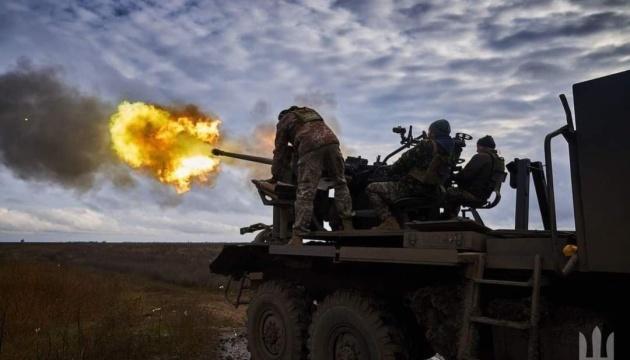
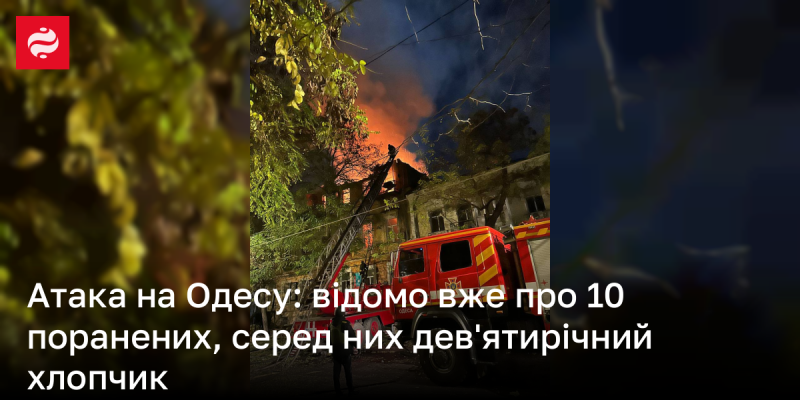
У тренді

